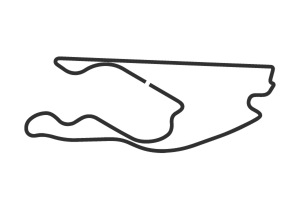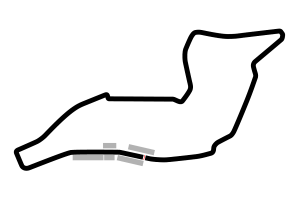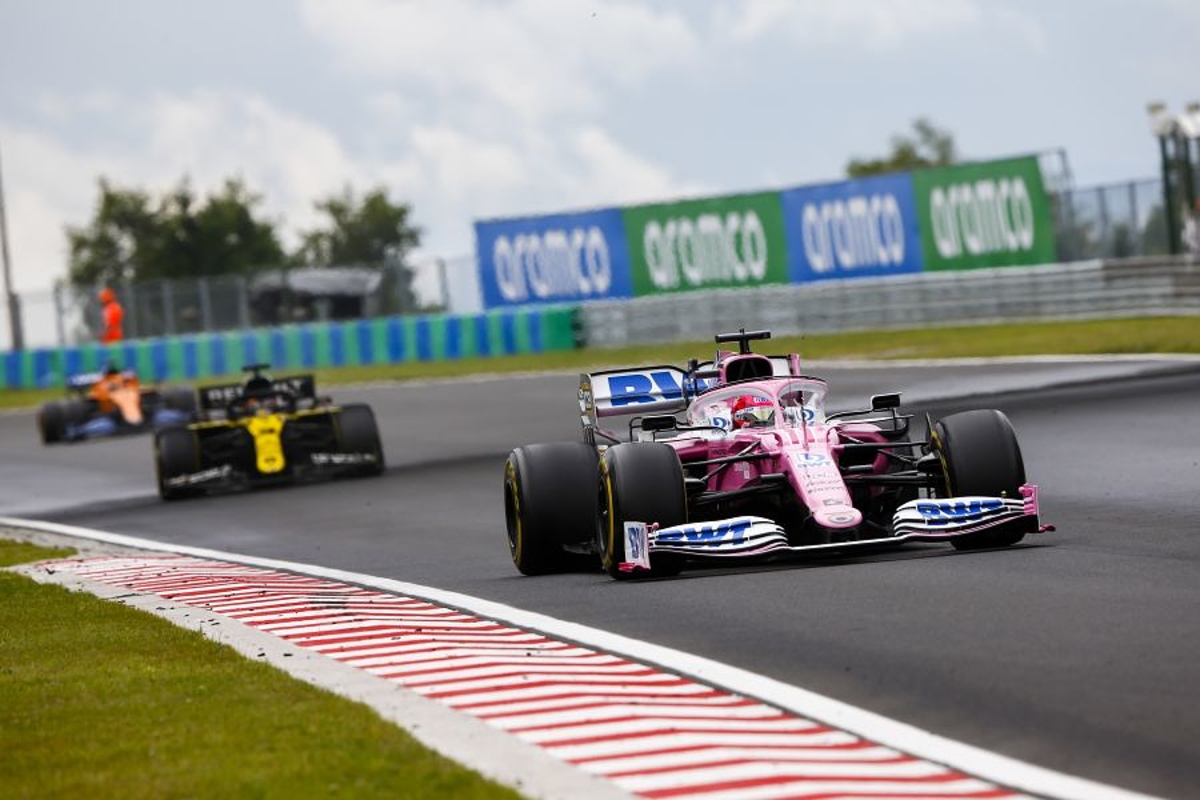Racing Point has been deducted 15 points, fined €400,000 and reprimanded after Renault's protests against the brake ducts on this year's RP20 were upheld.
Renault lodged formal complaints about the legality of the car following the last three grands prix in Styria, Hungary, and last weekend's British Grands Prix.
Following a stewards' hearing at Silverstone on Wednesday, Racing Point has been deducted 7.5 points per car for use of the brake ducts in the Styrian GP - enforced against the constructors' championship only - and fined €200,000 per car.
As for the Hungarian and British GPs, reprimands have been issued.
The stewards determined that as "the penalty rendered at the Styrian Grand Prix was proportionate for the violation of the design process which led to the breach of the regulations, a further penalty of reprimand is sufficient for the Hungarian and British Grands Prix".
Racing Point has until 9.30am BST, Saturday, August 8, to file an appeal.
Dubbed the 'Pink Mercedes', the RP20 garnered attention at pre-season testing for its similarities to Mercedes' 2019 title-winning car, the W10.
While Racing Point technical director Andrew Green revealed the designs had been approved by the FIA, motorsport's governing body later said it had not inspected the brake ducts, and subsequently requested the parts from the W10 and RP20 for comparison.
Renault claimed the brake ducts on the RP20 are identical to the W10. From this season, brake ducts are considered listed parts, meaning they have to be designed and manufactured in-house.
The decision will come as a blow to Racing Point as both Green and team principal Otmar Szafnauer had insisted the brake ducts complied with the regulations.
The brake ducts themselves have not been deemed illegal, but rather it is the design process which contravenes the FIA's sporting regulations, hence the penalty.
In a 14-page document issued by the FIA, the arguments of both teams are made clear, along with the FIA Technical Department's analysis.
In its findings, the stewards concluded that the front brake ducts, in particular, on the RP20 "began in an earlier evolution with being run on the RP19 in 2019, when the Mercedes brake ducts, as non-listed parts could legitimately be used.
The stewards added: "The ambiguity of the regulations leaves some room for argument on this point. The stewards conclude that the combination of the design work done one the 2019 RP19 coupled with the necessary upgrade work to the FBDs [front-brake ducts] in designing and developing the 2020 RP20 cross the quantitative threshold for design work necessary to me the SRs [sporting regulations] requirements for LPs [listed parts] in 2020.
"Since the RP20 RBDs [rear-brake ducts] were not run on the RP19 in 2019, and since the stewards believe that the design effort expended by Racing Point in adapting the RBDs originally designed by Mercedes for the W10 pales in comparison to the significance of the original Mercedes work, the stewards conclude that the principal designer of the RP20 RBDs was Mercedes, not Racing Point.
"The method of creating the RP20 RBDs accrued a potential sporting advantage to Racing Point by allowing it to allocate a wide range of design resources to other design efforts as opposed to executing the detailed design effort on the RBDs that would have been necessary to replicate the equivalent effort from Mercedes in the original W10 design.
"Racing Point did not design the FBDs used on the RP20 as required by SR Appendix 6 and, therefore, the respective protests are well-founded.
"The stewards acknowledge that since the RBDs are compliant with the 2020 FIA F1 technical regulations, it is not realistic to expect Racing Point to re-design or re-engineer the BDs in a way that would effectively require them to 'unlearn' what they aready know.
"Therefore, the penalty imposed is intended to penalise the potential advantage Racing Point may have accrued in the BD design process which resulted in the use of LPs which were not designed by it.
"The stewards emphasise that this breach is one of the sporting regulations rather than a non-compliance with the technical regulations and, therefore, it is not necessary to consider disqualification as the default sanction for the breach, as would normally be the case for a technical regulation breach."
In handing out the penalty, there were a number of mitigating circumstances, that include:
* The change in the classification of the BDs from non-LPs in 2019 to LPs in 2020.
* The absence of specific guidance or clarification from the FIA in respect to how that transition to LPs might be managed within the spirit and intent of the regulations.
* The lack of detailed focus on BDs by the FIA personnel who inspected the RP20 in March 2020 when they were admittedly focused on the entire car.
* Racing Point could probably have obtained much of the same amount of competitive advantage from photographing the Mercedes W10 RBDs and reverse engineering them, albeit with additional design resources expended in the process.
* In every respect regarding this matter, Racing Point has been open and transparent with regard to their actions, which they fully believed to have been compliant with the regulations, and the stewards attribute no deliberate intent to any breach of the regulations that occurred.
Related






 GP AUSTRALIA
14 - 14 Mar
GP AUSTRALIA
14 - 14 Mar

 GP CHINA
21 - 21 Mar
GP CHINA
21 - 21 Mar

 GP JAPAN
4 - 4 Apr
GP JAPAN
4 - 4 Apr

 GP BAHRAIN
11 - 11 Apr
GP BAHRAIN
11 - 11 Apr

 GP SAUDI ARABIA
18 - 18 Apr
GP SAUDI ARABIA
18 - 18 Apr

 GP USA
2 - 2 May
GP USA
2 - 2 May

 GP ITALY
16 - 16 May
GP ITALY
16 - 16 May

 GP MONACO
23 - 23 May
GP MONACO
23 - 23 May

 GP SPAIN
30 - 30 May
GP SPAIN
30 - 30 May

 GP CANADA
13 - 13 Jun
GP CANADA
13 - 13 Jun

 GP AUSTRIA
27 - 27 Jun
GP AUSTRIA
27 - 27 Jun

























 Grand Prix of Belgium 2025
Grand Prix of Belgium 2025  Grand Prix of Hungary 2025
Grand Prix of Hungary 2025  Grand Prix of Azerbaijan 2025
Grand Prix of Azerbaijan 2025  Grand Prix of Singapore 2025
Grand Prix of Singapore 2025  Gran Premio de la Ciudad de Mexico 2025
Gran Premio de la Ciudad de Mexico 2025  Grande Prêmio de São Paulo 2025
Grande Prêmio de São Paulo 2025  Qatar Grand Prix 2025
Qatar Grand Prix 2025  Grand Prix of Abu Dhabi 2025
Grand Prix of Abu Dhabi 2025 